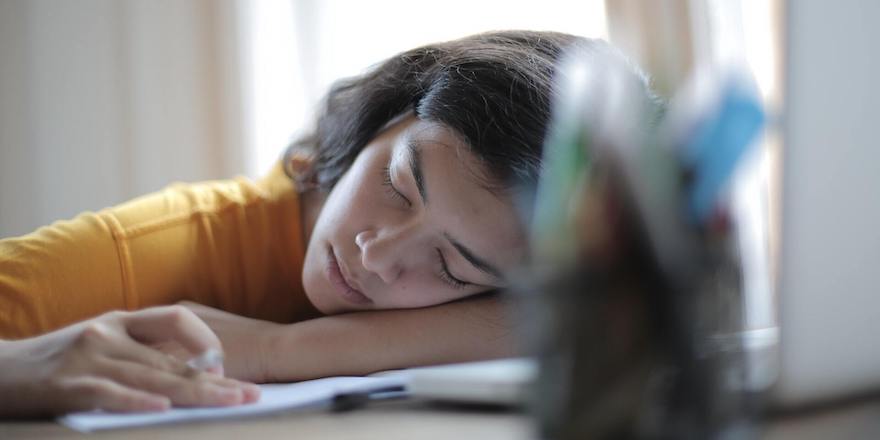Catching Enough Z's
A group of VIU nursing students share their advice on how to get enough sleep.

Sleep is important for your physical and emotional health. Sleep can help you stay healthy by keeping your immune system strong, improve your mood and make you feel less stressed. We all have trouble sleeping sometimes and this can be for many reasons.
Tips to improve sleep
Below are some tips and tricks to help you get the rest you need.
Your sleeping area could be the problem
Use your bedroom only for sleeping and sex so your brain associates the bedroom with only those activities. Move the TV and radio out of your bedroom, and try not to use your computer, smartphone, or tablet to compute, text or surf the Internet while you are in bed. Keep your bedroom quiet, dark, and cool. Use curtains or blinds to block out light. Consider using soothing music or a white noise machine to block out noise.
Your evening and bedtime routine matter
Limit technology use during the hours before bedtime. The light from these devices and the emotions that can result from checking email or social media sites can make it harder to unwind and fall asleep. Create a relaxing bedtime routine. You might want to take a warm shower or bath, listen to soothing music, or drink a cup of non-caffeinated tea. Go to bed at the same time every night, and get up at the same time every morning, even if you feel tired. Use a sleep mask and earplugs if light and noise bother you.
If you are lying in bed awake, try these strategies:
- Imagine yourself in a peaceful, pleasant scene. Focus on the details and feelings of being in a place that is relaxing.
- Get up and do a quiet or boring activity until you feel sleepy.
- Don’t drink any liquids after 6 pm if you wake up often because you have to go to the bathroom.
Your activities during the day can affect how you sleep
- Get regular exercise. Figure out what time of day works best for your sleep patterns.
- Get outside during daylight hours. Spending time in sunlight helps to reset your body’s sleep and wake cycles.
- Limit caffeine (coffee, tea, caffeinated sodas) during the day. And don’t have any for at least 4 to 6 hours before bedtime.
- Don’t drink alcohol before bedtime. Alcohol can cause you to wake up more often during the night.
- Don’t smoke or use tobacco, especially in the evening. Nicotine can keep you awake.
- Don’t take naps during the day, especially close to bedtime.
- Don’t take medicine that may keep you awake, or make you feel hyper or energized, right before bed. Your doctor can tell you if your medicine may do this and if you can take it earlier in the day.
If you can't sleep because you are in great pain or have an injury, or you often feel anxious at night, or you often have bad dreams or nightmares, talk with your doctor.
For more information visit Sleeping Better on the HealthLinkBC website.
Learn more about Vancouver Island University
account_balanceMore About This School
